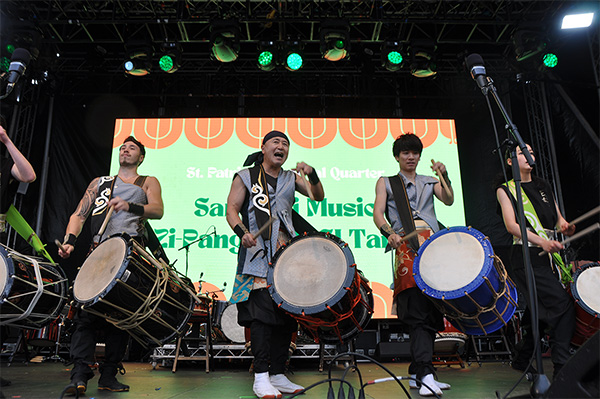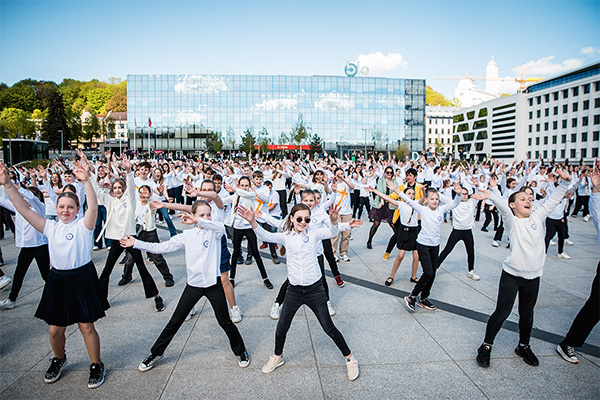Column
ColumnJAPANESE GUESTS SHINED IN PILSEN
Among others, also the Pilsen Philharmonic took part in the rich dramaturgy of the festival of Japanese music by realizing the concert of the Kyoto Symphony Orchestra. This concert was also the part of the project Pilsen – European Capital of Culture 2015. In the process of organizing this concert it is necessary to emphasize the role and cooperation with Pilsen 2015 B.Co., generous support of the City of Kyoto and Japan Fest Foundation.
The Great Concert Hall of the Municipal Meeting House was filled with audience full of suspense and expectations. Apart from subscribers there were so many other interested people, that it was necessary to add more seats. The official welcoming of the guests was essential in the case of such an important event: the guests were welcome and greeted by the Japanese Ambassador to the Czech Republic, His Excellency Tetsuo Yamakawa, by the Intendant of the Pilsen Philharmonic, B.Co., Lenka Kavalová, and by the representatives of the City of Pilsen.
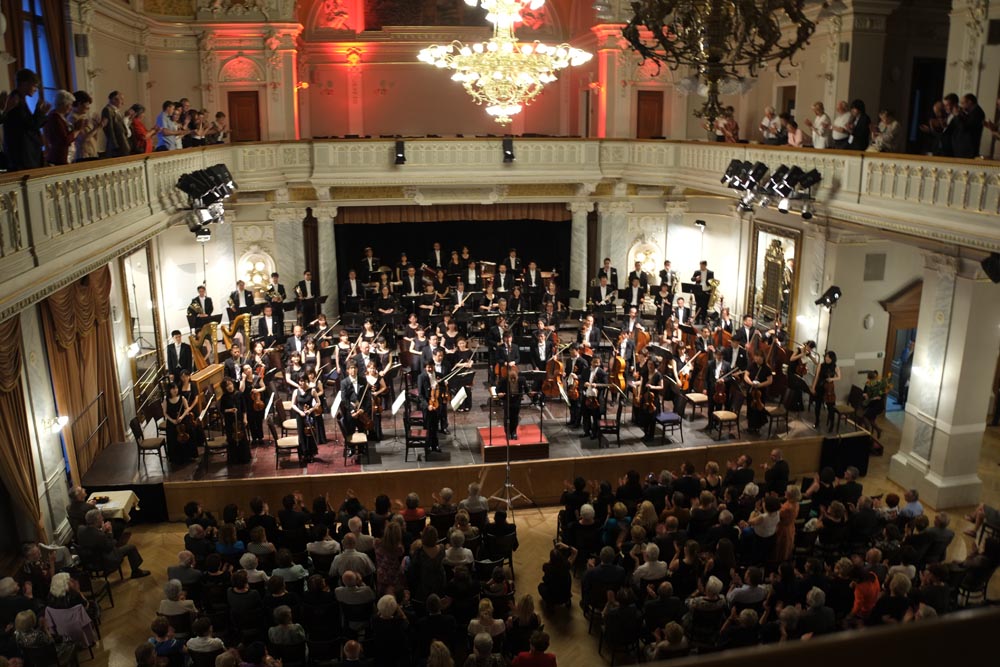 © Kazuo Ikeda
© Kazuo Ikeda
The Kyoto Symphony Orchestra was founded as historically the fourth Japanese symphonic ensemble in 1956. From the size of smaller, so called Mozart orchestra it eventually came to be a large ensemble performing music of the 19th and 20th centuries and also music of Japanese composers, who are inspired by the atmosphere and history of the old Kyoto. The ensemble received prestigious Japan Record Academy Award for original performance of these compositions. The orchestra has appeared as a guest at many European festivals, for example in France, Austria and also at the Prague Spring Music Festival in 1997. The concert in Pilsen was a part of the concert tour on the occassion of the orchestra´s 60th anniversary of existence. Apart from Pilsen, the Kyoto Symphony Orchestra performed also in Cologne upon Rhine, Amsterdam, and Florence. Kyoto Symphony Orchestra´s Chief Conductor has since April 2014 been Junichi Hirokami. Junichi Hirokami was born in Tokyo in 1958. There he later studied music science, the piano and viola at the Tokyo College of Music. He started his career as a conductor at the age of twenty-six, after his victory in the Kondrashinov Conductor Competiton in Amsterdam. Vladimir Ashkenazy, a member of the jury at that time, offered him the cooperation with the Tokyo Symphony Orchestra NHK and then with the Orchestre National de Paris. Hirokami has cooperated with all Japanese orchestras, he has conducted in Europe and in the USA. He was the first Japanese conductor to work with the Israel Philharmonic Orchestra. His opera debut was with the Australian Opera in Sydney.

© Kazuo Ikeda
On the Pilsen concert stage, a large string orchestra – there were more than 30 violins – played at the beginning. This very disciplined and adaptable ensemble fascinated audience with full sound and a large scale of nuances of dynamics. The conductor of tiny build, but very nimble and full of energy had the orchestra completely “in his hands“. This Japanese orchestra was supposed to include also the music of its country in the programme. As an introduction, a composition of one of many Japanese composers of the 20th century who in their work connected elements of traditional Japanese music with European music was performed. The composer Touru Takemitsu (1930 – 1996) successfully used various kinds of music styles and experiments. Sound variability and inventiveness of his compositions resulted in many contracts in film music: he composed music for almost one hundred films. In The Three Film Scores for String Orchestra from his late work period he inclined to the style of romanticism with slight Japanese touches. The audience were absorbed into impressive sound that did not lack lightness, and the orchestra was able to stay on top of things thanks to the conductor´s expressive gestures.

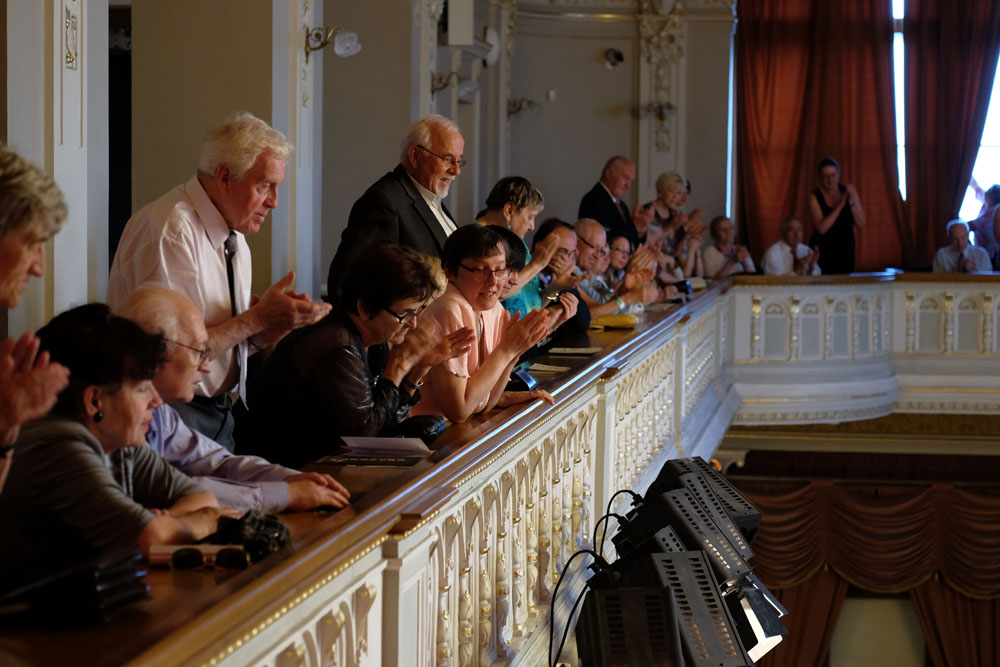 © Kazuo Ikeda
© Kazuo Ikeda
The whole symphony orchestra performed the compositions that followed. With relatively small number of musicians the Violin Concerto No. 2 G minor by Sergei Prokofiev was performed. The solo part was played by Fumiaki Miura, the twenty-two-year old winner of the International Joseph Joachim Violin Competition in Hannover in 2009 and the winner of other competitions. He is studying in Vienna currently and he has performed with many orchestras in Austria, Germany, Poland, the USA, and, of course, in his homeland. The young violinist performed without ostentation and was engrossed in the composition. In accordance with the spirit of the composer´s way of thinking, the soloist gave the performance in perfect symbiosis with the orchestra. As it is a habit, the audience asked for an encore, but there was none. However, it was proper, because the great emotional experience did not need anything more. I consider this performance to be an artistic highlight of the whole concert.
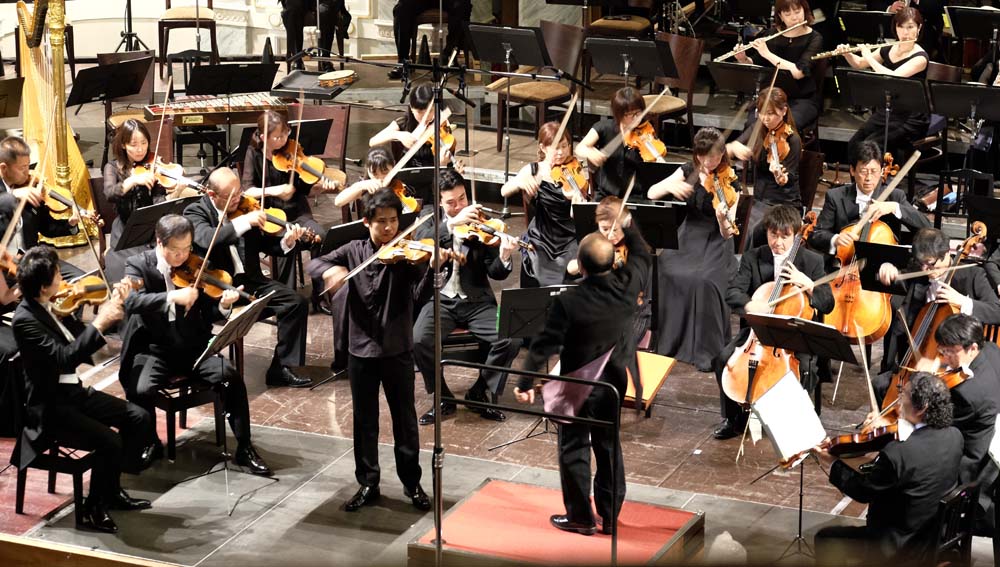 © Kazuo Ikeda
© Kazuo Ikeda
After the interval, the Kyoto Symphony Orchestra engaged itself in music of Richard Strauss (1864 – 1949). The orchestra in full size played composer´s symphonic poem Till Eulenspiegel´s Merry Pranks (Till Eulenspiegels lustige Streiche) at first. This composition is inspired by the life of a legendary hero of German jokers´collection from the half of the 16th century. The conductor built it – as a piece of music composition – perfectly, and as for expressivity, he performed it more dramatically than we are used to hearing it. The orchestral suite of music from the best-known Strauss´s opera The Knight of the Rose (Der Rosenkavalier) was the final part on the concert programme. This composition expresses carelesness and certain hedonism typical of Viennese life of both the 18th and 19th centuries. The gleam of composer´s original music orchestration mainly in the waltz rhythm was intensified into the whirl of both lightness and vigour by the orchestra, that was inspired by its conductor. The elation of the audience was endless and here, encore was appropriate. As the closure of the concert, the Japanese guests delighted the audience with the performance of Slavonic Dance by Antonin Dvorak.
This concert will surely remain in the minds of its participants for its wonderful sound of stringed instruments, Prokofiev´s Violin Concerto, or spirit and amusement in the rhythm of the waltz.
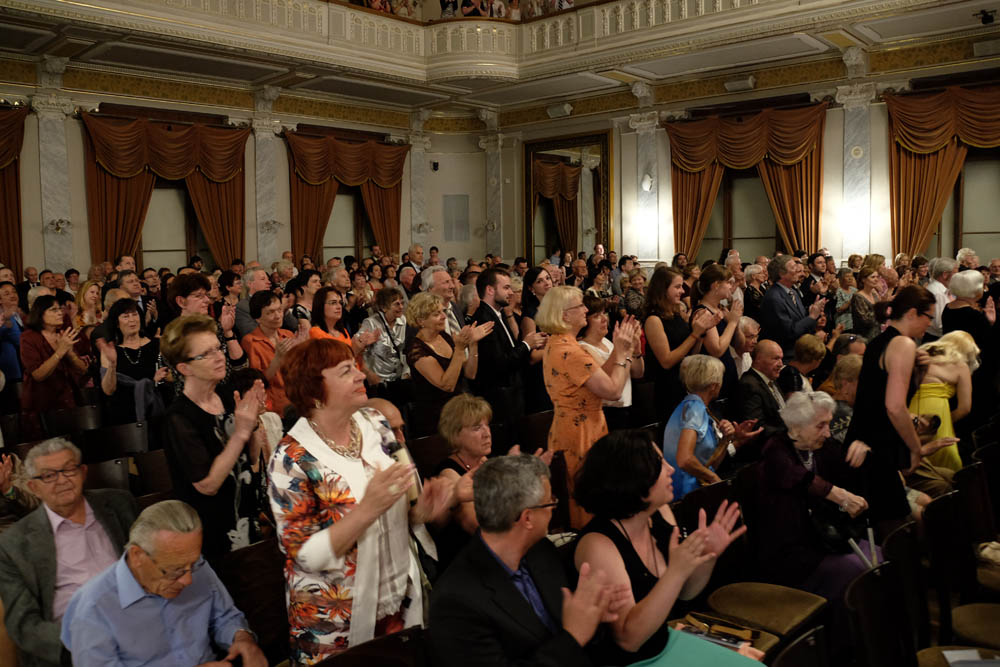 © Kazuo Ikeda
© Kazuo Ikeda




